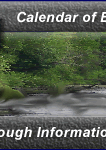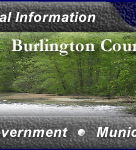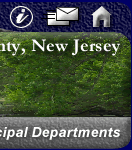What is Municipal
Court?
The Municipal Court is
a local court created by state law, whose territory is confined to
the city or community in which it is located. Practice and procedures
are governed by New Jersey Court Rules. The Municipal Court Judge
is responsible for overseeing the administration of his or her Municipal
Court. The Assignment Judge of the Superior Court (whose office is
located in Mount Holly) is responsible for overseeing the administration
of all of the municipal courts in Burlington County.
What Types
of Cases are Heard in Municipal Court?
Cases heard in municipal
court are divided into four general categories:
Violations of motor vehicle
and traffic laws
Violations of disorderly and petty disorderly persons offenses (criminal
cases which may result in fines or jail)
Violations of municipal ordinances (local laws)
More serious offenses, known as indictable offenses, are sent to the
County Prosecutor's Office. The County Prosecutor decides whether
to present the case to Grand Jury or to return the case to the municipal
court as a less serious offense (a downgrade).
When is a Court
Appearance Required?
A court appearance is ALWAYS
required in criminal matters, such as assault, shoplifting, harassment,
drug charges, etc. In traffic or other matters, if "court appearance
required" is checked on the ticket, you must appear in court
at the time and place indicated, even if you wish to plead guilty.
If "court appearance required" is not checked on the traffic
ticket, you must still appear in court if:
You wish to have a trial
The charge is not listed on the Statewide Violations Schedule
Personal injury is involved
What Happens
on Your Day In Court?
It is very important that
you arrive in court on the day and time stated on your ticket, summons,
subpoena or court notice. Before the session starts, or once court
begins, roll call is generally taken. If you arrive late, or if your
name is not called, you should notify court personnel immediately.
If the defendant does not
appear, the Judge will advise all witnesses when they may leave. Witnesses
will be notified through the mail when they are to return. A warrant
may be issued for the defendant who fails to appear, and his/her driving
privileges may be suspended.
All municipal court proceedings
are tape recorded. Therefore, it is necessary for everyone in the
courtroom to remain quiet until it is their turn to speak. The length
of time you will be in court depends on many things. Some cases take
longer than others. Please be patient so that the court may give each
case the time and attention it deserves.
At the beginning of the
court session, the Judge will give an opening statement. explaining
court procedures, defendants' rights, and penalties. As each case
is called, the Judge will individually advise each defendant of his/her
rights. A case may be postponed to permit the defendant time to hire
a lawyer. If the defendant wishes to go ahead without a lawyer, the
Judge will ask for his/her plea. If the defendant pleads guilty, the
Judge will ask questions regarding the offense charged to make sure
that there is basis for a guilty plea.
If the defendant pleads
not guilty and all involved parties are present and prepared, the
case will proceed to trial. Once the Judge has heard the testimony,
he/she will decide if the defendant is guilty, not guilty, or if the
case should be dismissed. If the defendant pleads guilty, or is found
guilty after a trial, the Judge will impose sentence.






![]()






![]()